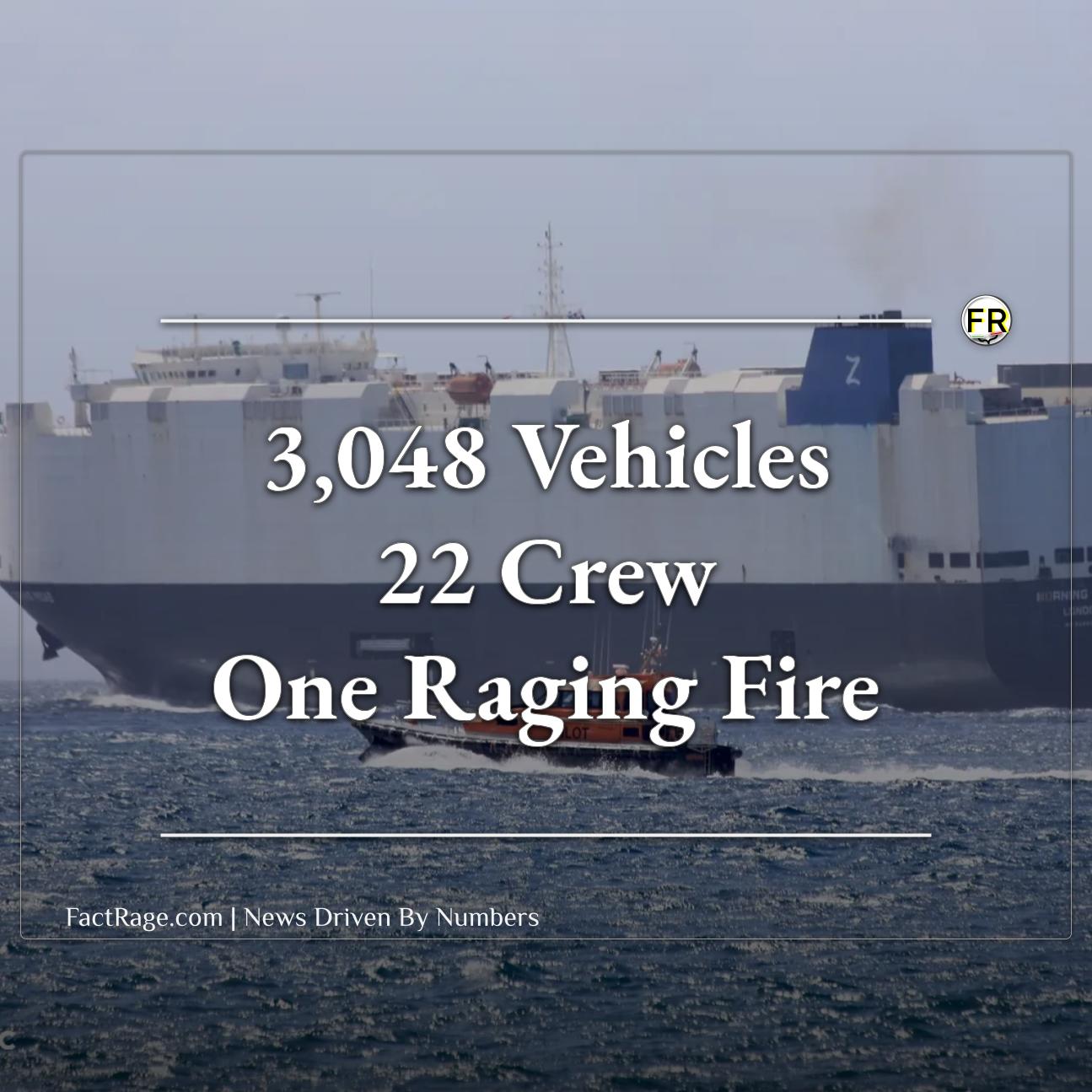JUNEAU, AK – A fire broke out aboard the Liberian-flagged car carrier, Morning Midas, on June 3, 2025, while it was transiting the Pacific Ocean southwest of Adak Island, Alaska, prompting the safe evacuation of all 22 crew members.
Key Insights:
- Vessel and Cargo – The Morning Midas was carrying 3,048 vehicles, including 70 fully electric vehicles (EVs) and 681 partial hybrid electric vehicles.
- Origin and Destination – The ship departed Yantai, China, on May 26 and was en route to Lázaro Cárdenas, Mexico.
- Crew Safety and Initial Response – All 22 crew members were evacuated without injury and rescued by the merchant vessel COSCO HELLAS after attempts to control the fire with onboard systems failed. Smoke was reportedly first seen on a deck housing EVs.
The Morning Midas, a 183-metre car carrier managed by Zodiac Maritime, encountered a serious fire incident that has drawn attention to the challenges of transporting vehicles, particularly electric models, across oceans.
What Happened Aboard the Morning Midas?

On June 3, 2025, smoke was detected on a vehicle deck of the Morning Midas. The ship’s operator, Zodiac Maritime, stated that smoke was initially observed emanating from a deck carrying electric vehicles. The 22-person crew initiated emergency firefighting procedures using the vessel’s onboard CO2 fire suppression systems. However, these efforts were insufficient to contain the blaze.
Given the uncontrollable nature of the fire, the crew abandoned ship and were subsequently rescued by the COSCO HELLAS, a nearby merchant vessel. The U.S. Coast Guard responded to the incident, which occurred approximately 260 to 300 nautical miles southwest of Adak Island, Alaska. No injuries to the crew have been reported. The vessel was reported to be still smoldering as of Wednesday afternoon, June 4th.
What Cargo Was Aboard and Where Was It Going?
The U.S. Coast Guard confirmed that the Morning Midas was transporting a total of 3,048 vehicles. This cargo included 70 fully electric vehicles and 681 partial hybrid electric vehicles. The vessel had departed from Yantai, China, on May 26, with previous stops at other Chinese ports including Nansha and Shanghai. Its final destination was Lázaro Cárdenas, Mexico. The specific manufacturers of the vehicles have not been officially detailed, though reports indicate the vessel was on time charter to China’s SAIC Anji Logistics, a subsidiary of Chinese auto giant SAIC Motor. Some sources suggest “several Chinese car brands” were among the cargo.
The value of the cargo has not been publicly released. In addition to the vehicles, the Morning Midas was carrying an estimated 350 metric tonnes of gas fuel and 1,530 metric tonnes of very low sulphur fuel oil (VLSFO).
What is the Suspected Cause and Projected Impact?

The exact cause of the fire is currently under investigation. However, the initial reports of smoke originating from a deck with EVs have intensified ongoing discussions within the maritime and insurance industries regarding the specific risks associated with transporting lithium-ion batteries. These types of batteries, when involved in fires, can burn at extremely high temperatures and are notoriously difficult to extinguish.
This incident is expected to have several repercussions. Economically, it highlights potential increases in insurance premiums for shipping electric vehicles and may accelerate efforts by automotive manufacturers to gain more control over their supply chains through vertical integration. There are also environmental concerns, though no pollution had been reported as of early June 5th. The focus remains on salvage efforts and preventing environmental damage. The event follows other significant car carrier fires in recent years, such as the Felicity Ace in 2022 and the Fremantle Highway in 2023, which have already led to calls for revised safety protocols and specialized firefighting equipment for vessels carrying EVs.









